Ketamine as a novel pharmacotherapy for eating disorders: Evidence & future directions
Brain Sciences | Published 12 March 2022
An exciting new paper we’ve published that reviews the current understanding and research on ketamine as a novel treatment intervention for eating disorders. Take a look at the details below.
Abstract: Eating disorders (EDs) are serious, life-threatening psychiatric conditions associated with physical and psychosocial impairments, as well as high morbidity and mortality. Given the chronic refractory nature of EDs and the paucity of evidence-based treatments, there is a pressing need to identify novel approaches for this population.
The noncompetitive N-methyl-D-aspartate receptor (NMDAr) antagonist, ketamine, has recently been approved for treatment-resistant depression, which exhibits rapid and robust antidepressant effects, particularly among clinical non-responders. It is now being investigated for several new indications, including obsessive-compulsive, post-traumatic, and substance use disorder; and shows transdiagnostic potential for EDs.
As such, the aim of this review is to examine contemporary findings on the treatment of EDs with ketamine, whether used as a primary, adjunctive, or combination pharmacotherapy. Avenues for future research are also discussed. Overall, results are encouraging and point to therapeutic value, yet are limited to case series and reports principally on anorexia nervosa. Further empirical work is thus needed to explore and establish ketamine efficacy for EDs, and to inform targeted treatment strategies.
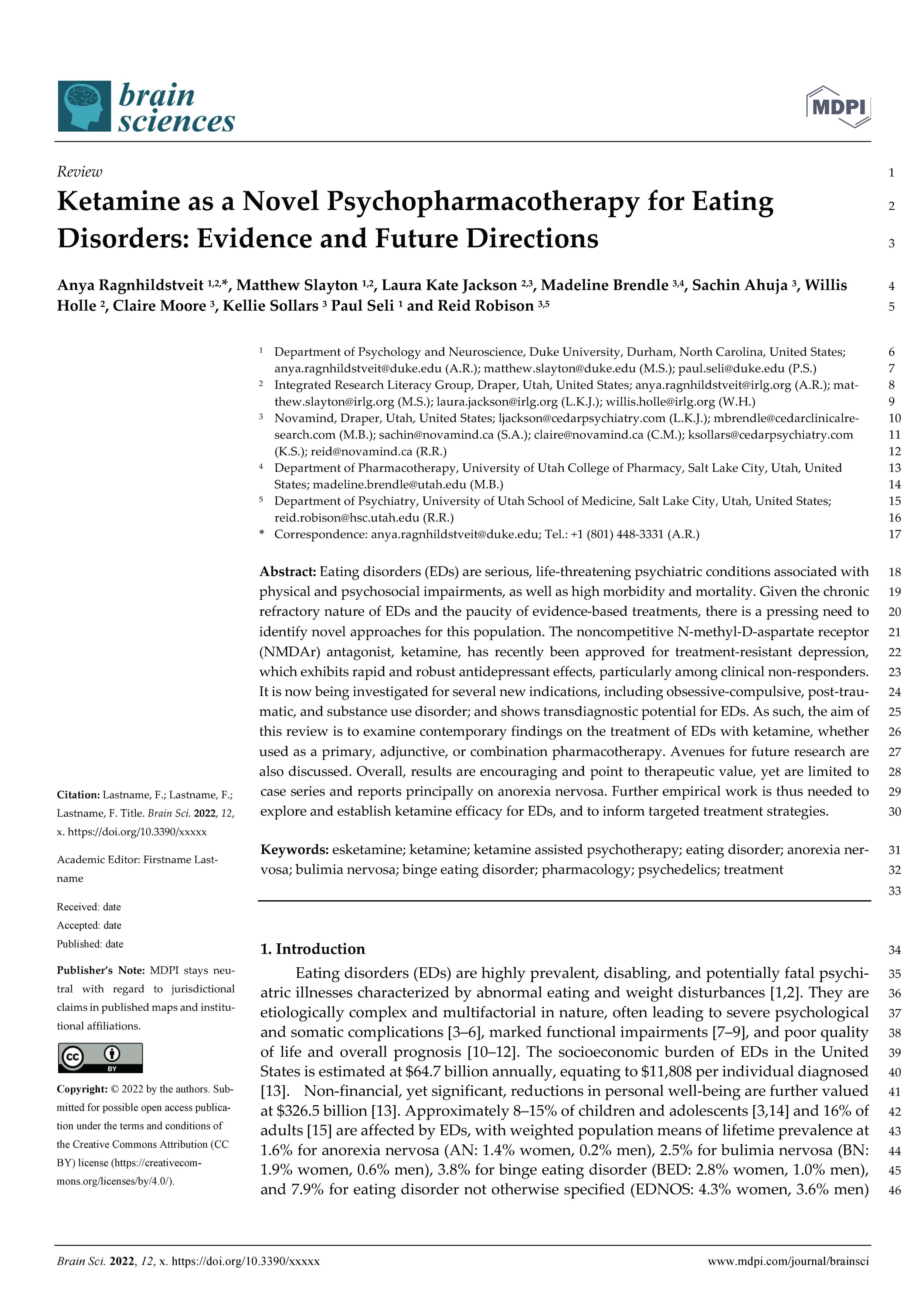
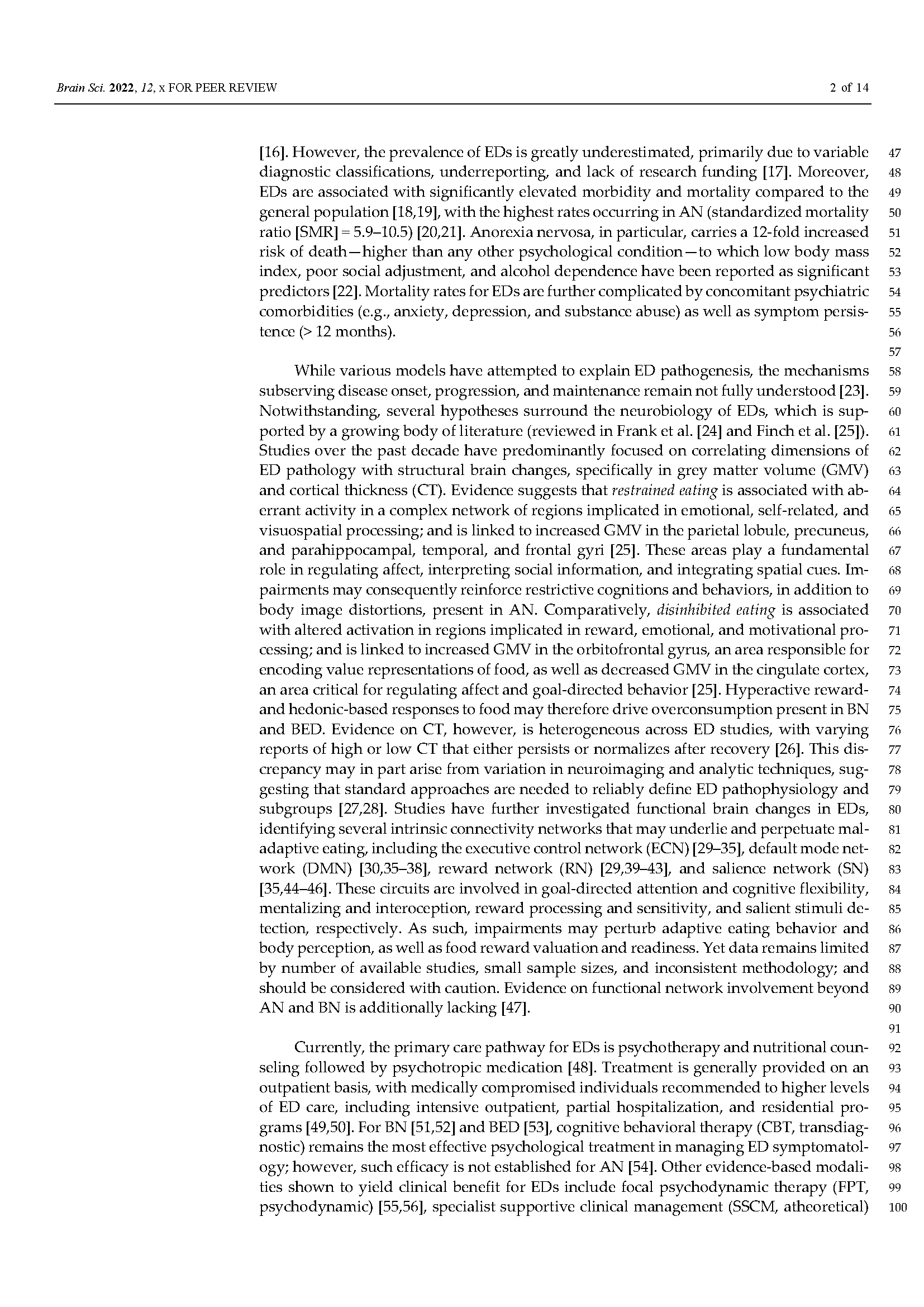
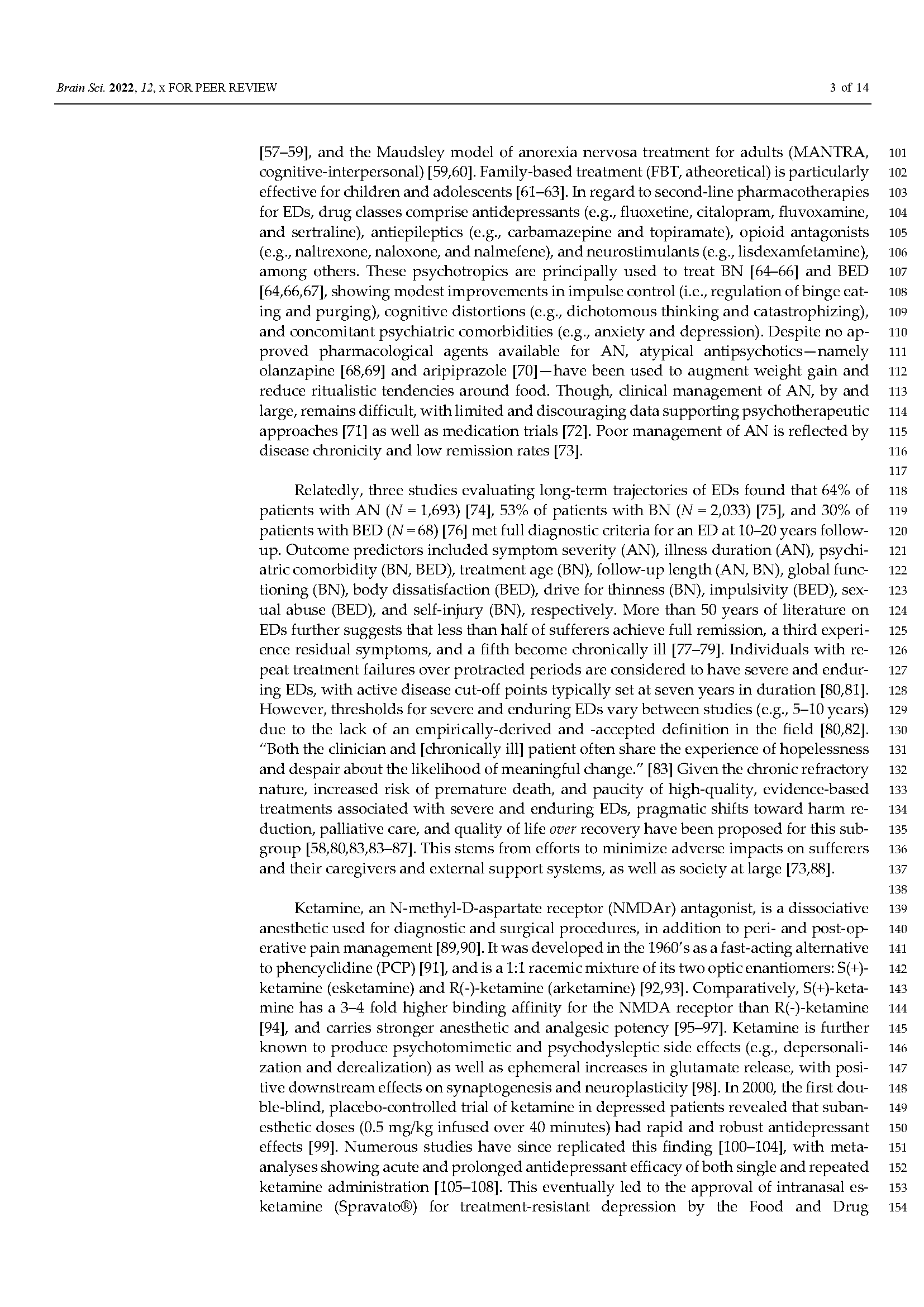
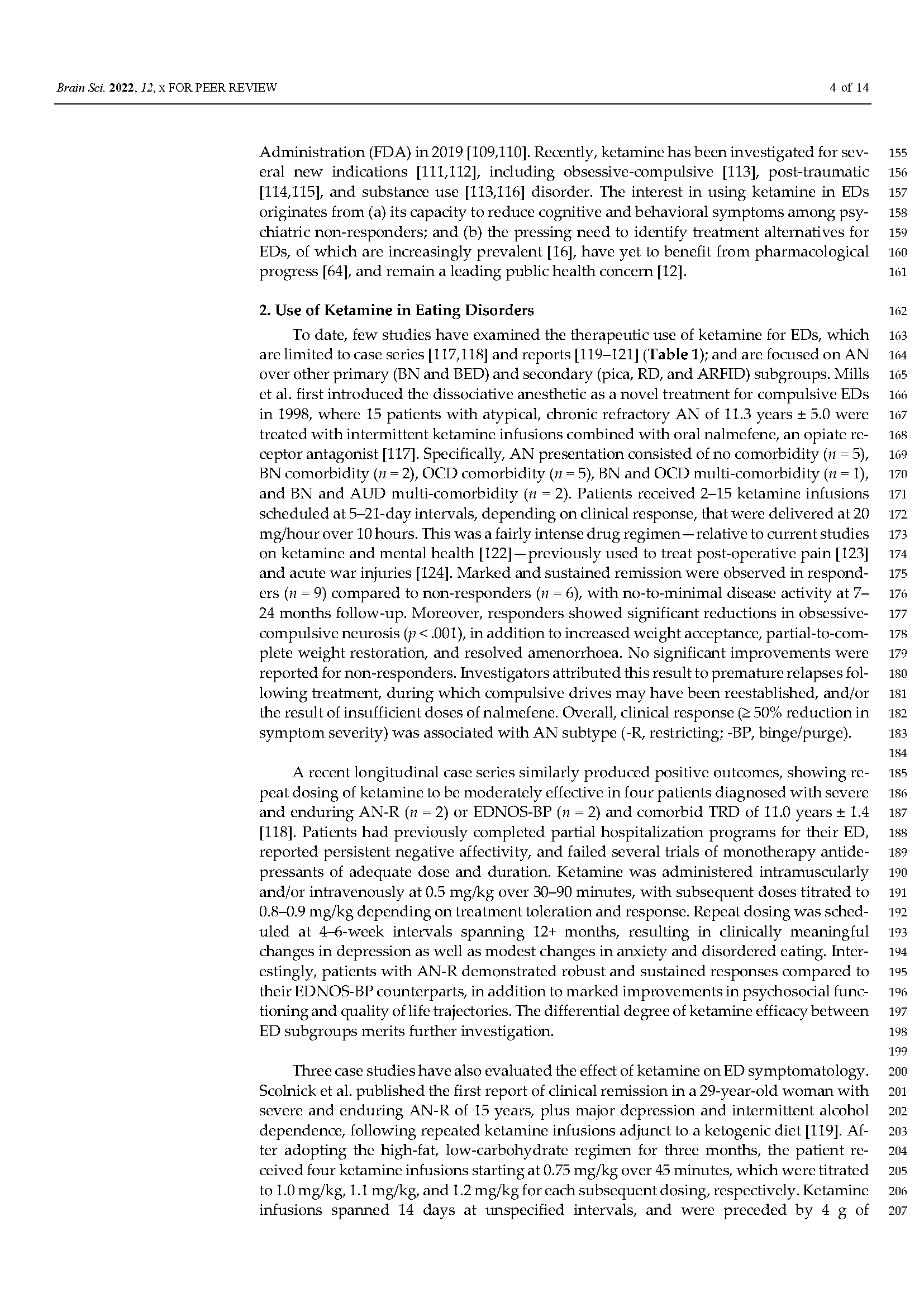
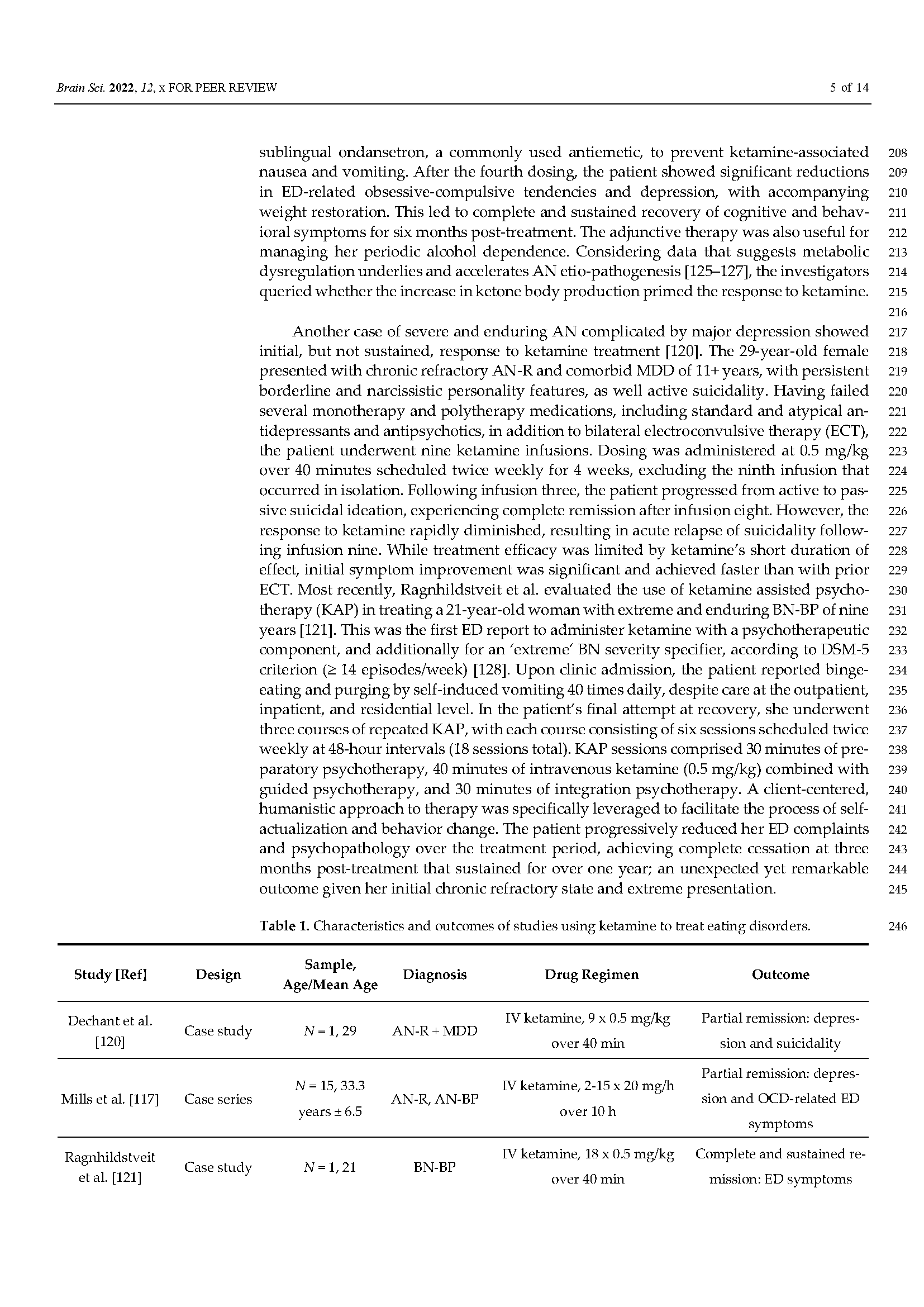
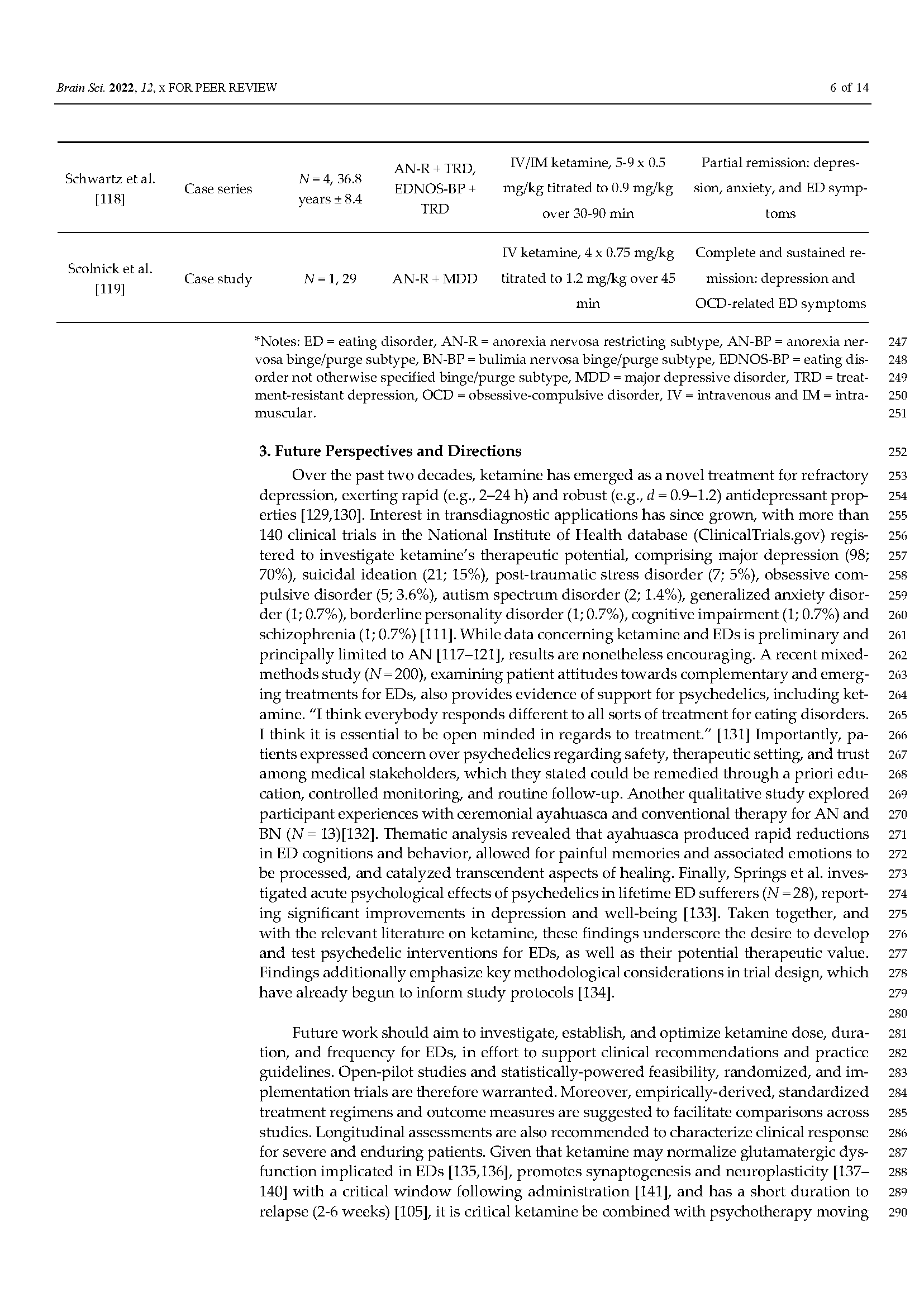
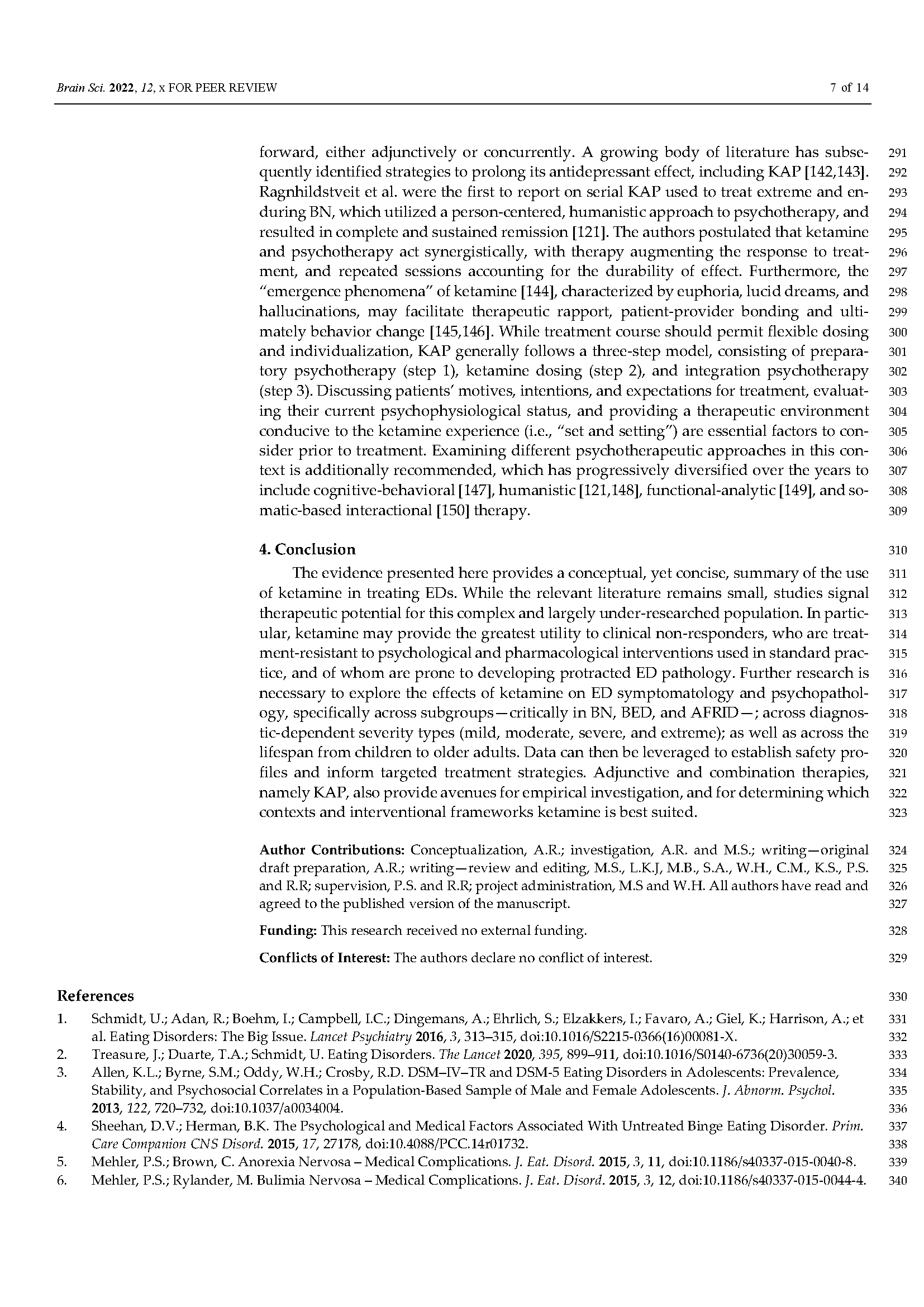
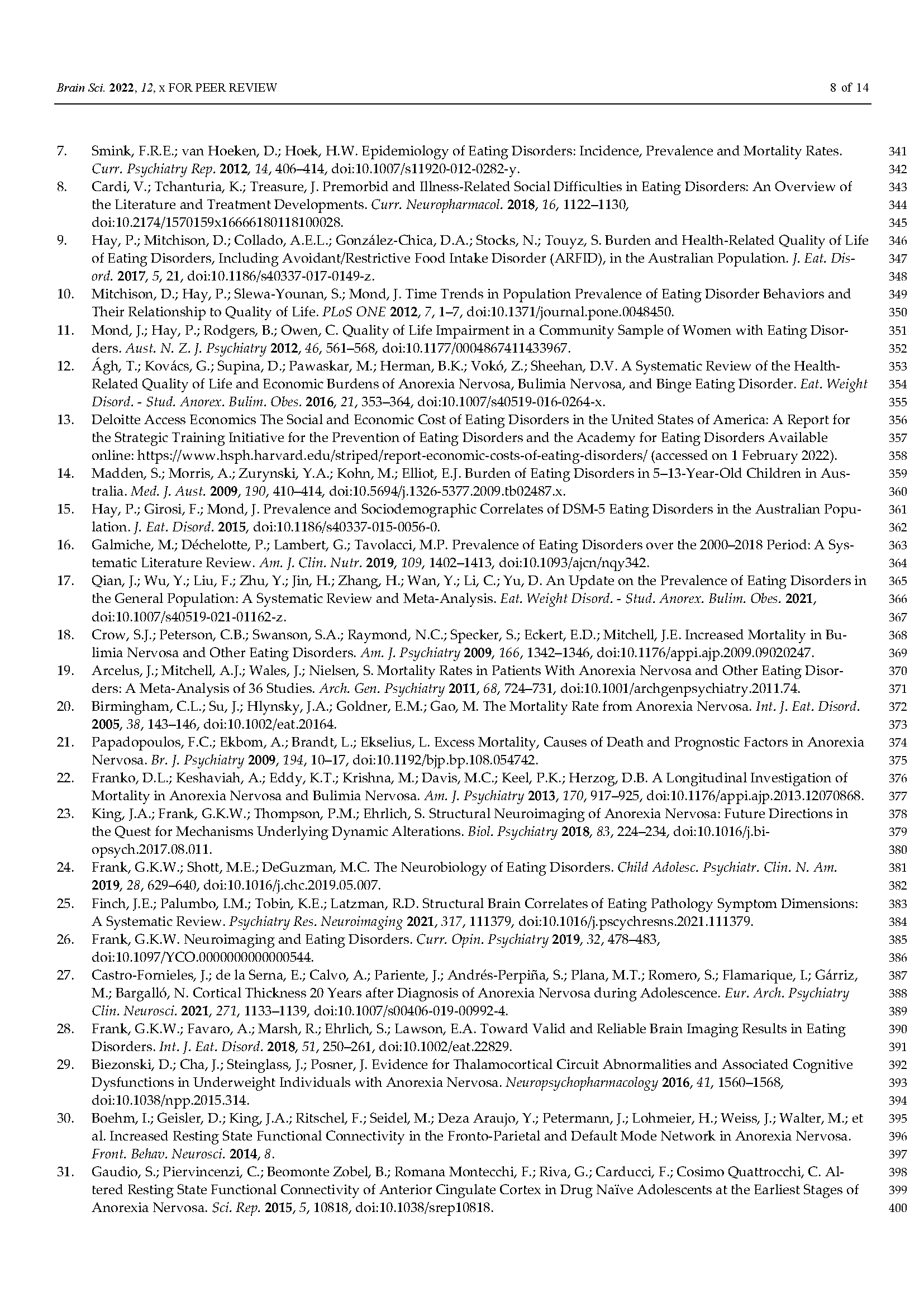
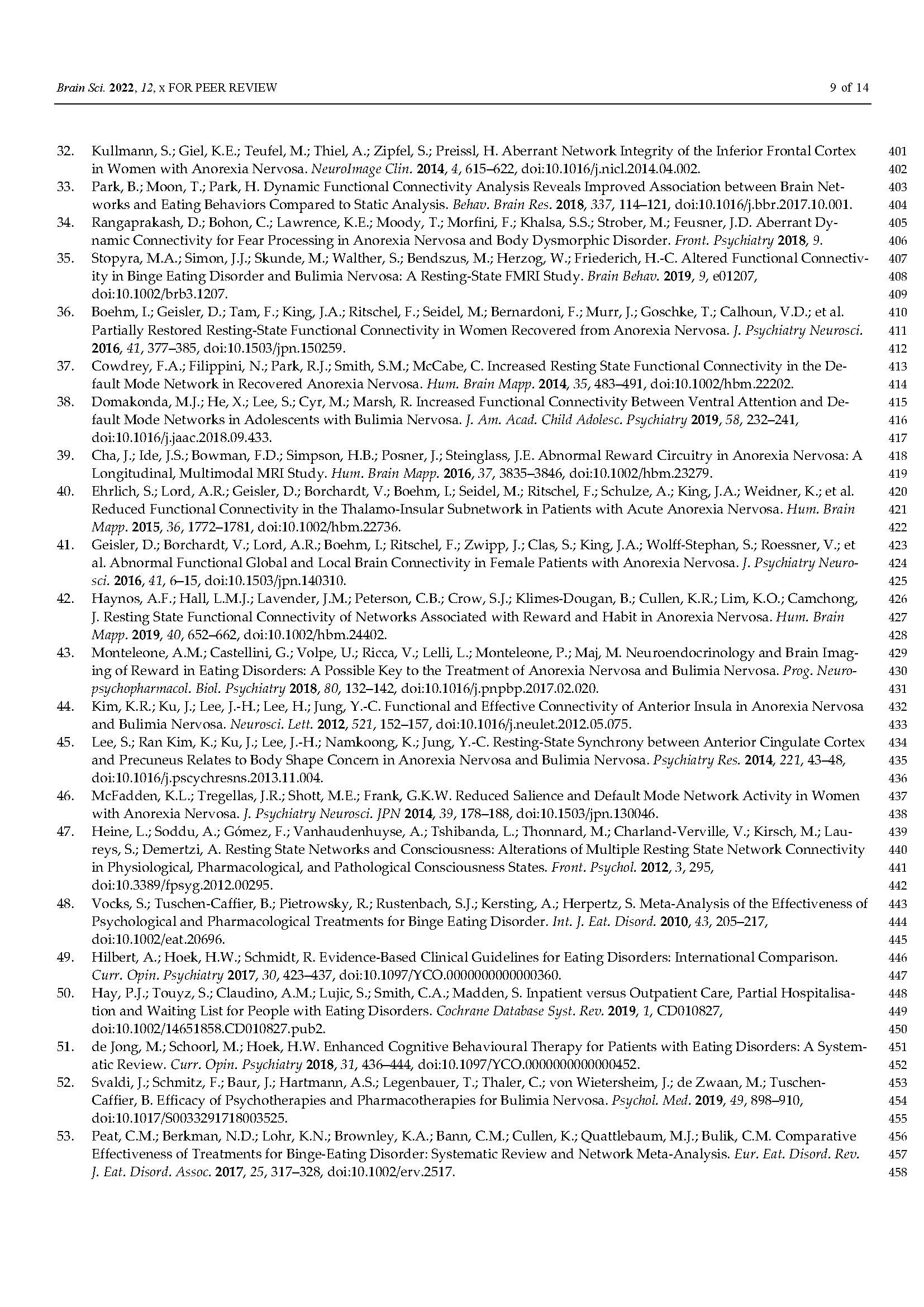
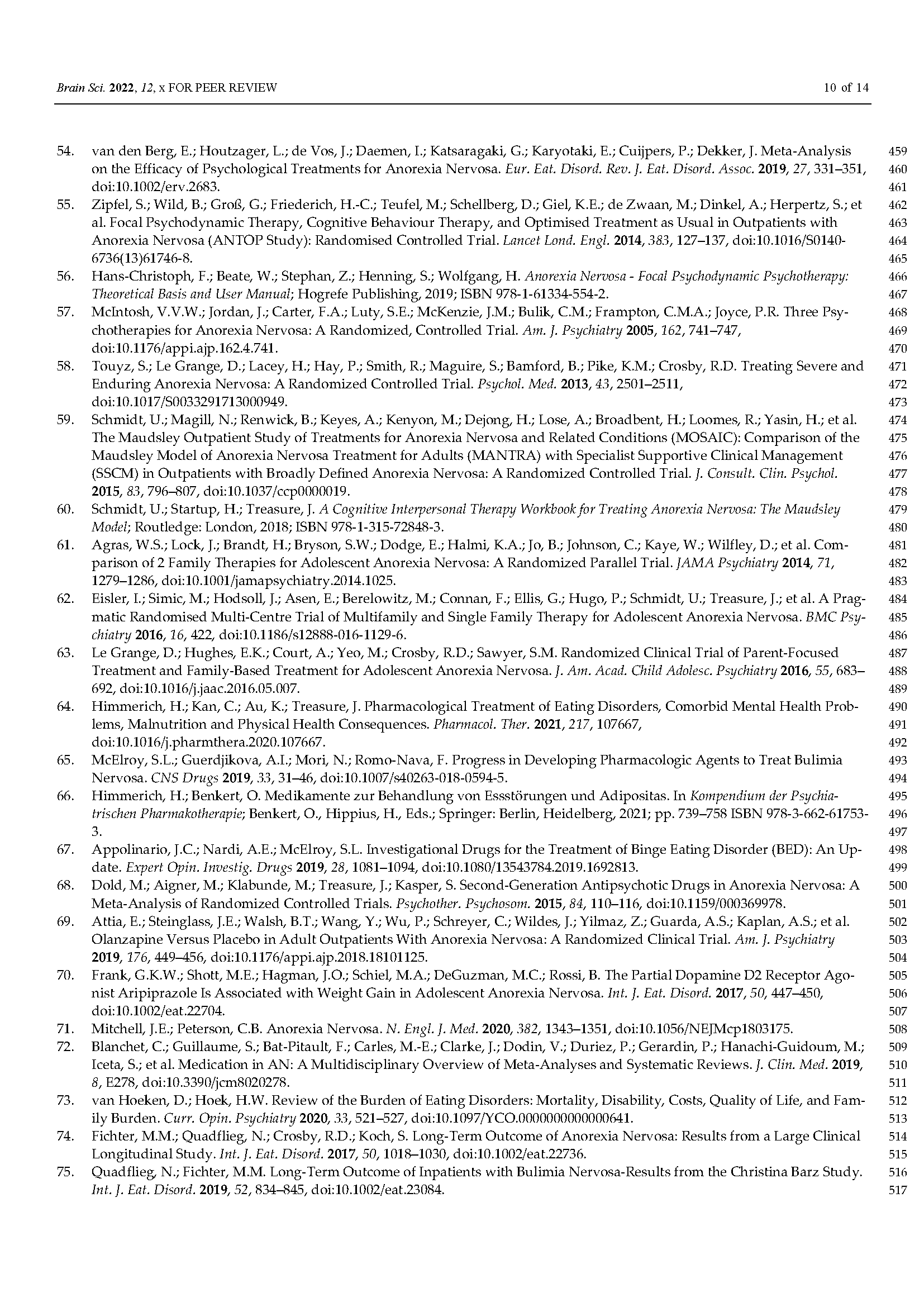
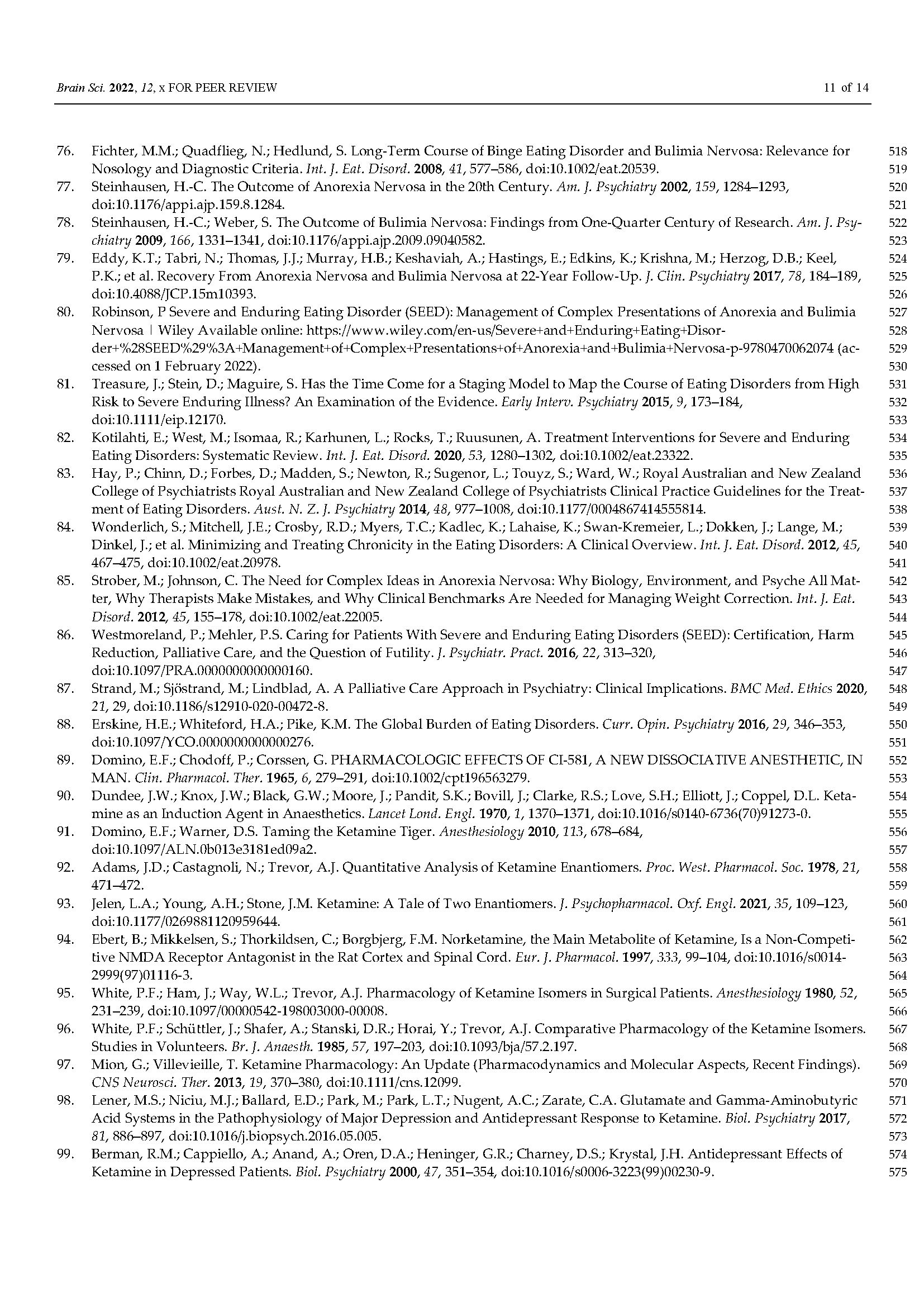
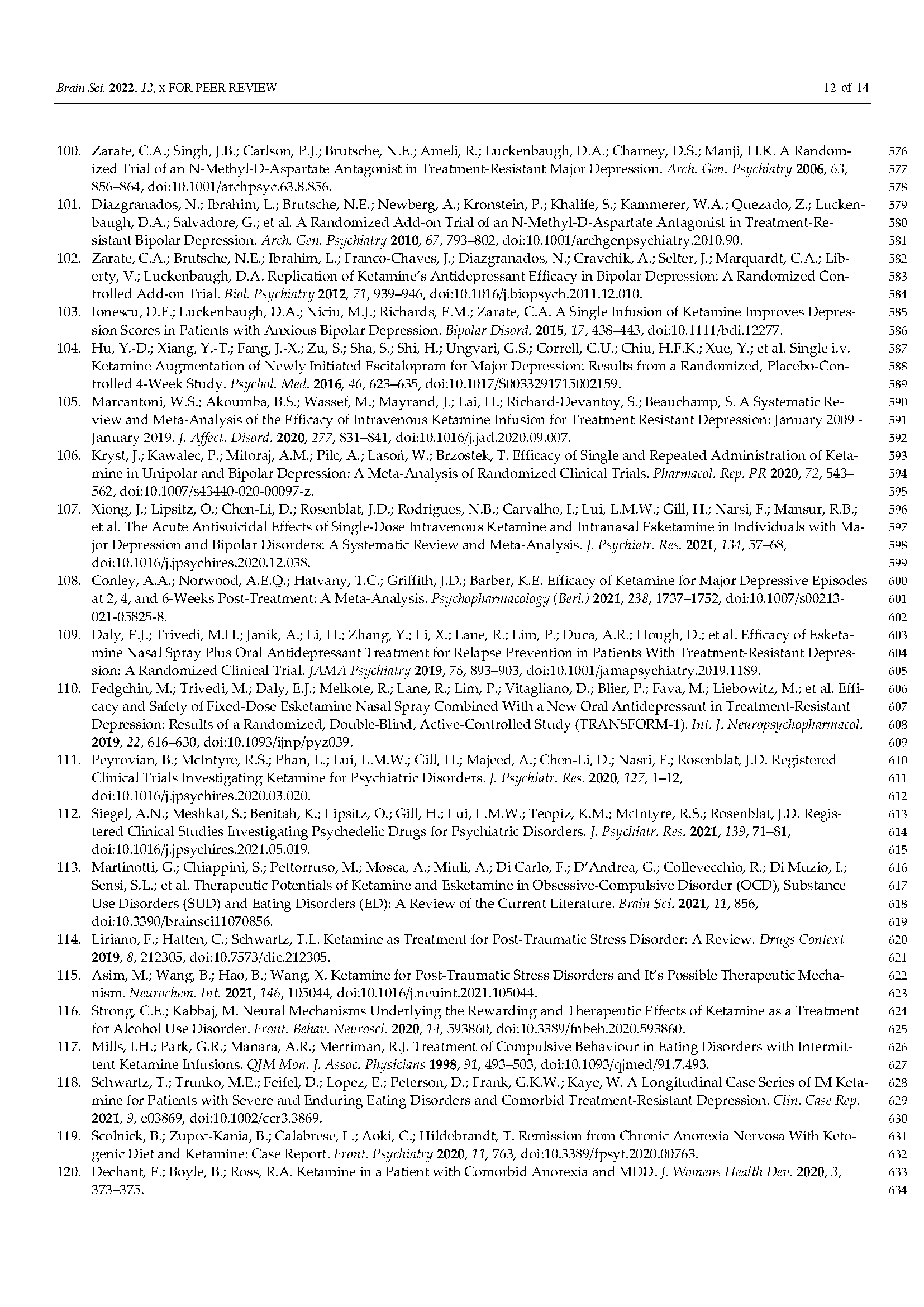
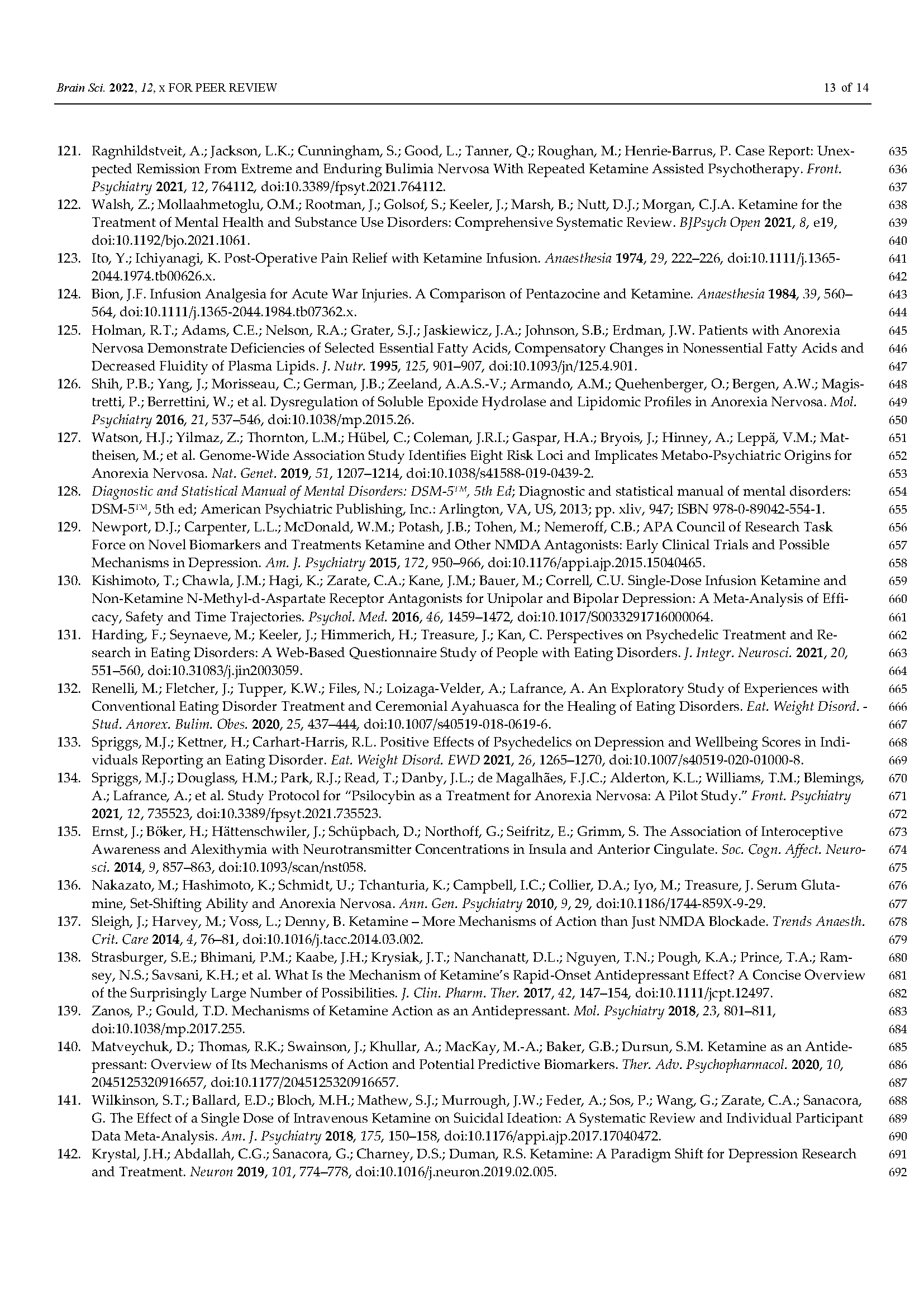
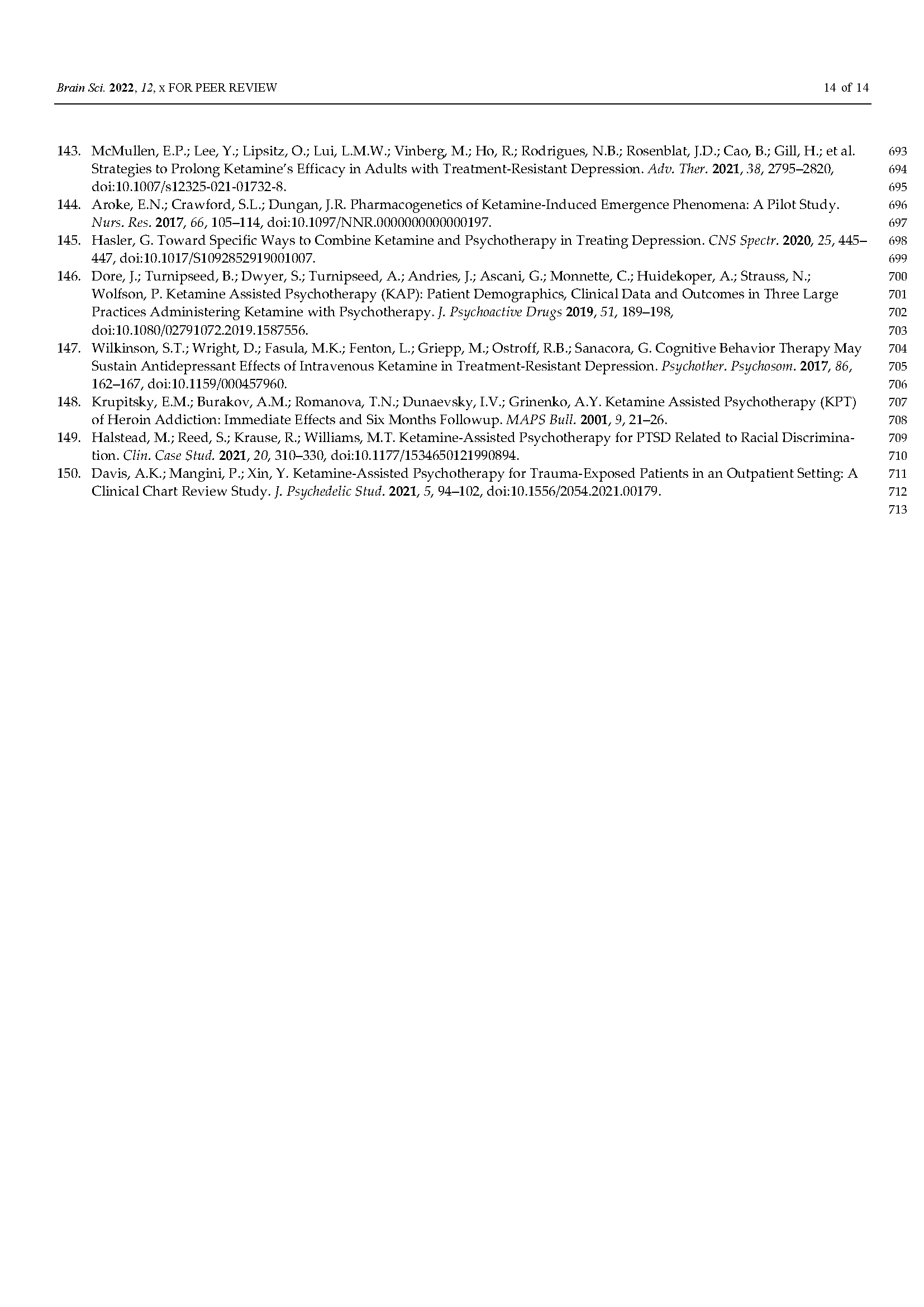
Citation
Ragnhildstveit A, Slayton M, Jackson LK, et al. Ketamine as a Novel Psychopharmacotherapy for Eating Disorders: Evidence and Future Directions. Brain Sci. 2022;12(3):382. Published 2022 Mar 12. doi:10.3390/brainsci12030382

